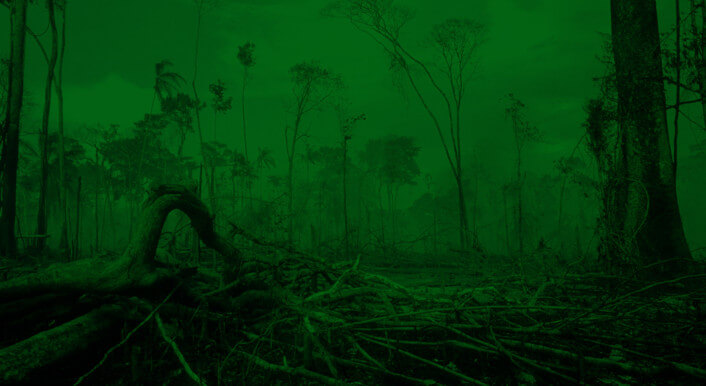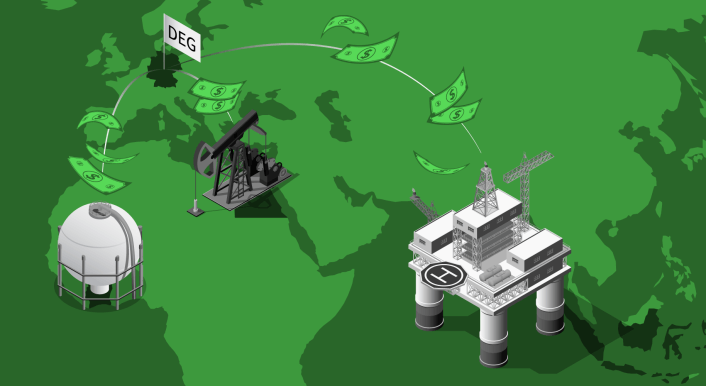Deforestation: German development bank is financing environmental destruction
Germany's national development bank DEG is funding dubious projects in the Global South. CORRECTIV and El Surtidor have been reporting on the deforestation crisis in Paraguay which is co-financed by the DEG. The German government is doing nothing about it.
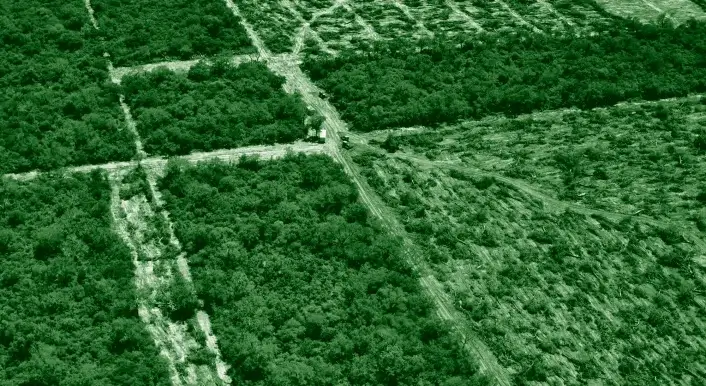
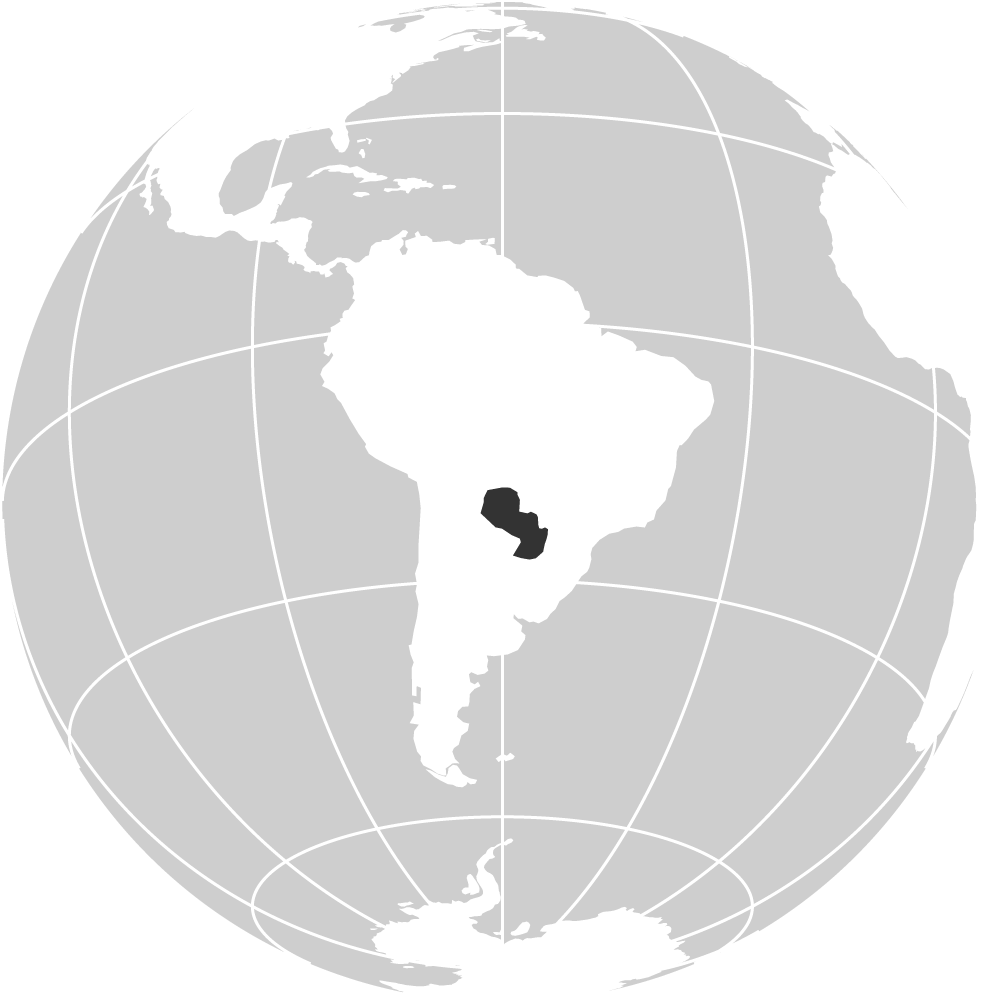
Chopped down, burned and ploughed up. The virgin forest in north-western Paraguay has almost disappeared. Where jaguars and wild dogs once roamed through the trees, beef cattle now graze on huge pastures. The trail of destruction leads all the way to Germany, into a glass building in Cologne’s city centre. This is where the German development bank DEG (Deutsche Investitions- und Entwicklungsgesellschaft) is based, one of the most important financiers of German development policy. In 2013, a deal was struck that is still destroying Paraguay’s environment today – all with the backing of the German government.
Between 1987 and 2020, the Paraguayan Chaco in the northwest of the country lost more forest than almost any other region in the world. Until the end of the 1980s, around 70 percent of the landmass here was covered by virgin forest. Since then, about 30 percent of the forested area has been destroyed. Although partially due to forest fires, most of the destruction was caused by clearing for cattle grounds.
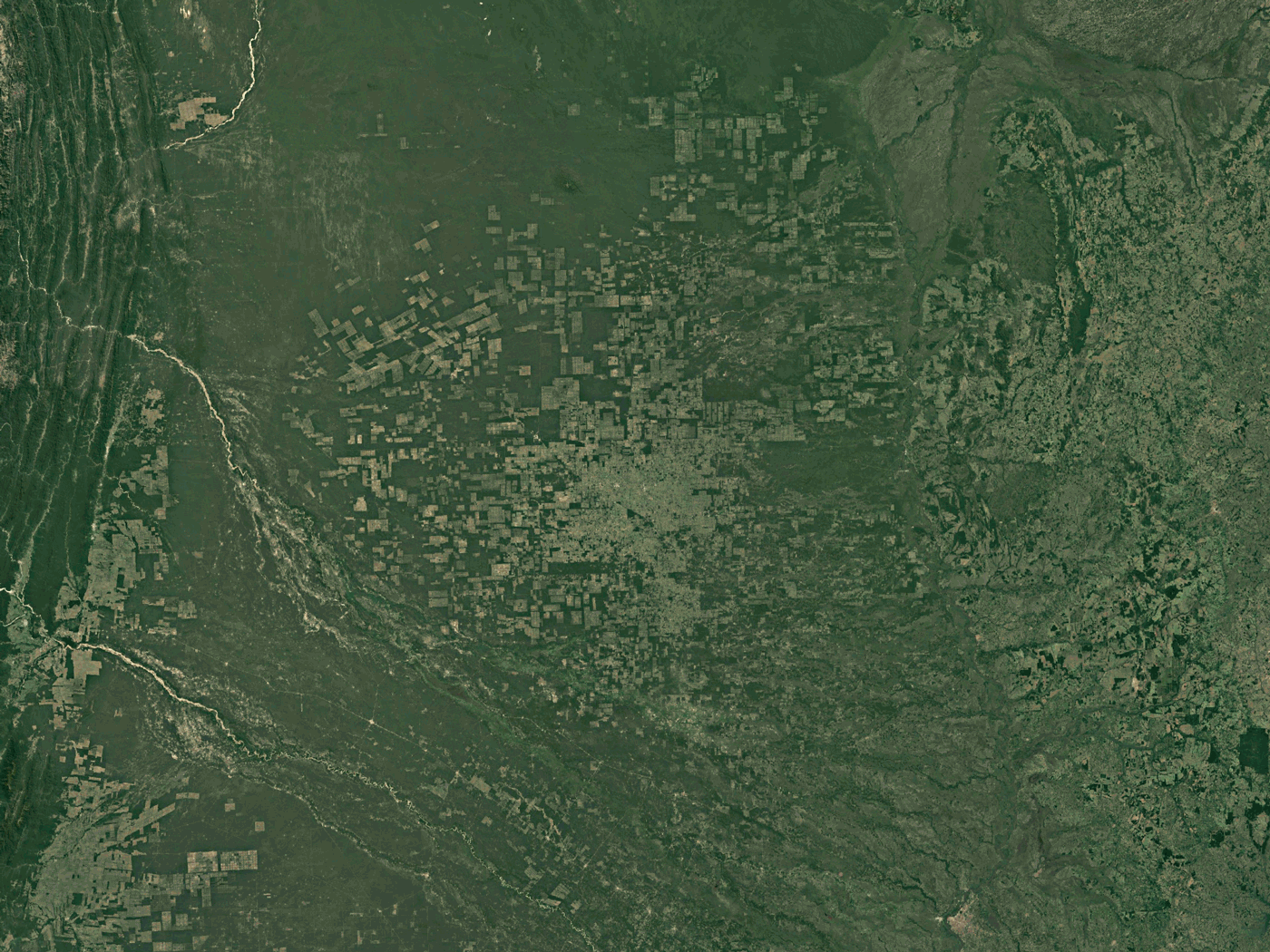
DEG to boost economy in developing countries
This dramatic deforestation was partly financed by a little-known yet extremely powerful German state institution: The German Investment and Development Corporation, or DEG for short. It is a bank with a public mandate: it is supposed to support the economies in so-called developing countries by investing and acquiring stakes in their private companies. It reports directly to the German Federal Ministry for Economic Cooperation and Development (Bundesministerium für Entwicklung und Zusammenarbeit, BMZ). According to the BMZ, money should only flow into projects that „make good sense in terms of development policy and are environmentally and socially responsible“. The DEG itself also advertises its “positive development effects for society and the environment” on its online presence.
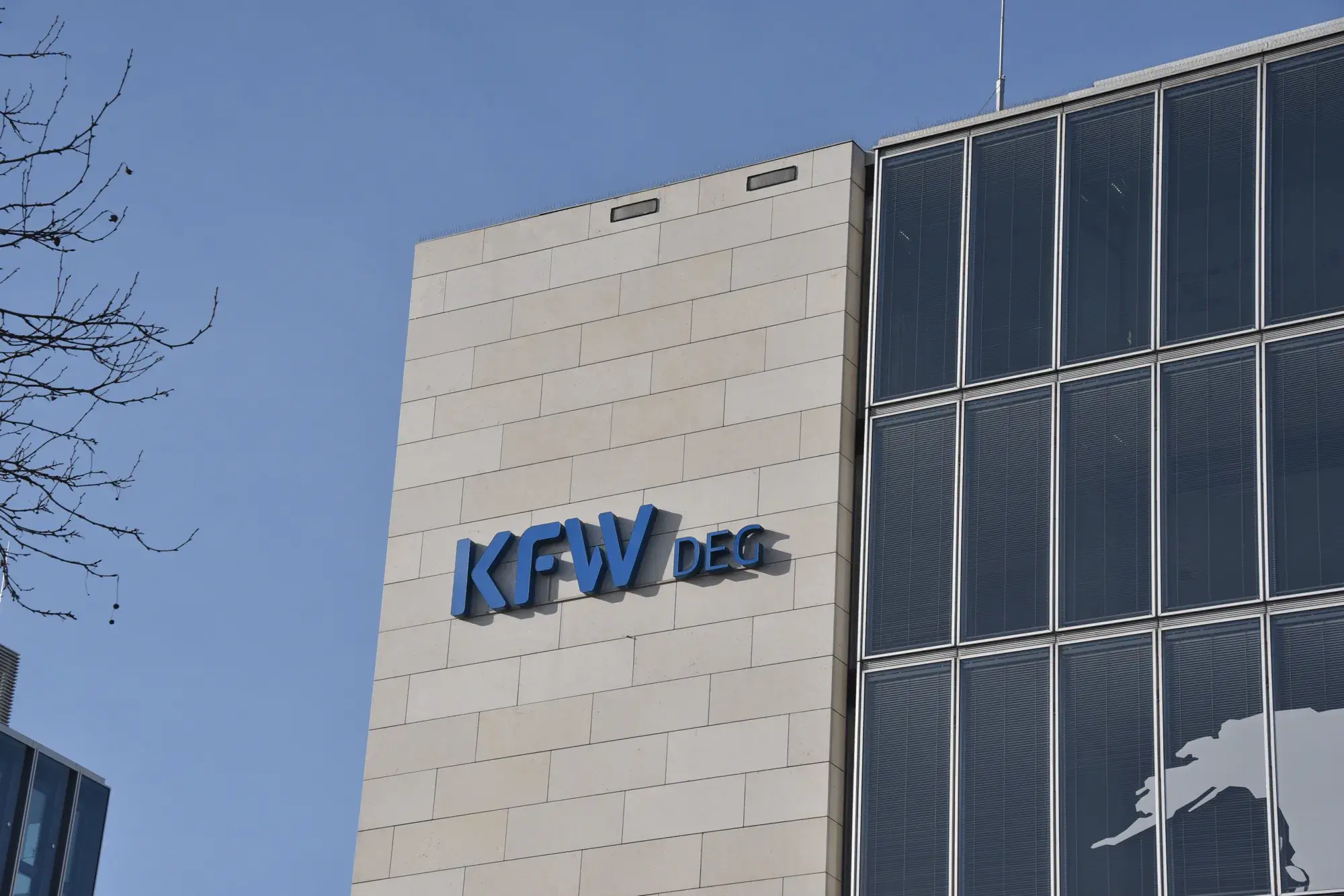
The history of the DEG
The DEG was founded in September 1962 as a federally-owned institution with the aim of strengthening the economy in the global South. The funds for this came from the German Federal Ministry for Economic Cooperation and Development (BMZ). In 2001, the German government sold the DEG to the Credit Institute for Reconstruction (Kreditanstalt für Wiederaufbau, or KfW for short). Since then, the DEG has financed itself through buying and selling bonds on the capital market. But the DEG is still one of the BMZ’s state institutions and its development policy mandate remains. The KfW and the German Development Company (Deutsche Gesellschaft für Internationale Zusammenarbeit, or GIZ for short), are also state institutions commissioned by the BMZ. The DEG’s portfolio currently amounts to around €9bn. A total of around 650 employees work for the bank worldwide.
But the example of Paraguay shows little evidence of these promises. Joint research by CORRECTIV and El Surtidor has shown for the first time that the DEG not only financed the deforestation of several thousand hectares of land in the Chaco between 2013 and 2020, it also helps fund controversial eucalyptus plantations. These plantations, span thousands of hectares, are based on a business model that has been strongly criticised by environmental and human rights organisations as well as the scientific community.
DEG’s shady financial operations seem to be systematic
And it’s not only in Paraguay that the DEG is financing questionable projects. Such problematic investments seem to be systematic – or at the very least accepted. This is partly due to the DEG’s structure: „It is very difficult for the DEG to find any good projects at all that can be used to demonstrate a developmental impact,“ Peter Wolff, an expert on development finance and former head of department for World Economy and Development Finance at the German Institute of Development and Sustainability (IDOS), told CORRECTIV and El Surtidor. As a result, he said, the DEG is also implementing more risky projects against its better judgment.
The consequences of this questionable business practice can be seen in the company’s scandal-ridden financial transactions of recent years.
In the name of German development policy, projects which harm the environment or promote the expansion of fossil fuel industries are being funded, as research by CORRECTIV has already uncovered. In recent years, for example, the DEG has financed more than a dozen projects which were environmentally damaging or destroyed the livelihoods of small farmers. While any developmental benefits were questionable, the benefits to corrupt businessmen in some cases were clear. And there could be more cases – the DEG has only been publishing information on its individual loans since 2015.
But the German government is happy to tolerate the DEG’s dirty deals, it seems. It has known about them for years and yet continues to support the development bank as part of German development policy. Representatives from the Development Ministry, the Federal Ministry for Economic Affairs and the Federal Ministry of Finance all sit on the DEG’s supervisory board. However, the ministries do not want to take responsibility for the bank’s questionable investments. The Federal Ministry of Finance referred CORRECTIV and El Surtidor to the „DEG’s business policy decision“, while Robert Habeck’s (Greens) Federal Ministry for Economic Affairs sees the SPD-led BMZ as responsible. The BMZ, in turn, emphasises the good work of the DEG supervisory board. It sees no reason to doubt that the board is carrying out its monitoring function, a spokesman for the Development Ministry said.
DEG finance in Paraguay
35,000 cattle, thousands of hectares of soy and wheat: the Paraguay Agricultural Corporation S.A. (PAYCO) is one of Paraguay’s largest agricultural groups. The company owns around 130,000 hectares of land and several farms scattered throughout the country. Forest plantations are also part of the business. The company is based in the tax haven of Luxembourg.
Since 2013, the DEG has had a €25m stake in the company, at that time still under the name Paraguay Agricultural Corporation (PAC). In total, the DEG has invested around €40m on behalf of German development policy. The aim was to strengthen local food production and establish a „sustainable timber industry“, as stated in a DEG release on the conclusion of the contract. The release added: „With our commitment, we are strengthening a professional and responsible agricultural enterprise.“
PAYCO’s overexploitation of nature
But in reality, the opposite has happened. Instead of focussing on sustainability and local supply, PAYCO has primarily been interested in the overexploitation of nature: since the DEG became involved, around 7,000 hectares of virgin forest have been destroyed on PAYCO’s farms – that’s the equivalent of around 10,000 football fields. The deforestation is in part due to forest fires, but the main cause is clearing for cattle grazing grounds. This has been shown in an evaluation by the German Aerospace Center, which analysed the deforestation on PAYCO’s land in the Chaco between 2013 and 2020 for CORRECTIV.
Method of deforestation analysis
The company not only created space for cattle pastures but also appear to have cleared a palm grove for subsequent eucalyptus plantations. This is the result of a recent study on PAYCO by the human rights organisation FIAN Germany.
There is a strong probability that many more hectares have been cleared by PAYCO since then, says Roman Herre, agricultural consultant at FIAN: „We assume that clearing has also taken place on other PAYCO farms that have not yet been discovered. The 7,000 hectares are probably only the tip of the iceberg. The number of unreported cases is likely to be much higher.“ This was also indicated by PAYCO’s sketchy sustainability reports.
PAYCO had not responded to inquiries from CORRECTIV and El Surtidor by the time of going to press. The Paraguayan Environment Ministry has also failed to comment on the case despite several requests.
The DEG has stated that they do not have any information on clearings of this „magnitude“. „The investment in PAYCO served to expand irrigation facilities, cultivate rice for the first time and establish sustainable timber production“, and in this way helped to reduce imports and improve local food production, the DEG claimed.
DEG finances further questionable projects
It is not only the deforestation of virgin forest that makes the DEG’s investments in the agricultural group problematic. The DEG’s business partner, EuroAmerican Finance S.A., which owns around 85 percent of PAYCO, is also suspect: insolvency proceedings are currently underway against the public company EuroAmerican Finance S.A. in Luxembourg. This is because EuroAmerican is part of a network of companies whose bankruptcy in 2014 led to the dissolution of the Portuguese commercial bank Banco Espirito Santo and left a financial hole of €4.9bn.
For the DEG, this currently threatens a loss of €25m. When asked by CORRECTIV and El Surtidor about the matter, the DEG declined to comment.
Arbaro draws in investors with high returns
Beside the bankrupt PAYCO there is another controversial group in Paraguay linked to the DEG. In 2020, the DEG invested almost €8m in the Arbaro Fund – a private equity fund, also based in the tax haven of Luxembourg.
On its website, the Arbaro Fund boasts an outstandingly high return of 12 percent for investors and sustainable forestry projects in Latin America and Africa. Arbaro provides „significant climate change mitigation and adaptation benefits in its target countries“, the German fund managers declare. In the coming years, they say, up to 20m tonnes of climate-damaging CO2 will be sequestered. Reforestation in order to combat the climate crisis is more or less what the fund is selling to its investors. In Paraguay, it operates several thousand hectares of eucalyptus plantations.
However, the Arbaro Fund admitted to CORRECTIV and El Surtidor that these promises are not being kept, at least not at the moment: „The target of sequestering 20m tonnes of CO2 corresponds to the fund’s total targeted investment of $200m and needs to be scaled to the actual fund size.“
The German Federal Ministry for the Environment is also involved in the Arbaro Fund: an international reforestation programme, to which the ministry contributes, has supported the Arbaro Fund with around €1.3m in loans and grants. The Green Climate Fund (GCF), a fund to which countries from around the world contribute in order to combat the climate crisis, has invested as much as $25m in Arbaro.
Arbaro’s contentious sustainability pledges
The investments in Arbaro went ahead despite the fact that the fund’s sustainability pledges have been called into question. An open letter to the GCF highlighting reports and studies which show the pledges to be implausible was signed by more than 100 international environmental organisations.
Eucalyptus plantations are above all a profit venture, and beneficial to neither the climate nor the environment, the authors of the letter say. Their statement is scientifically backed up: according to a study by the British University of Leeds, native forests can store CO2 for decades. Plantations, on the other hand, absorb significantly less CO2.
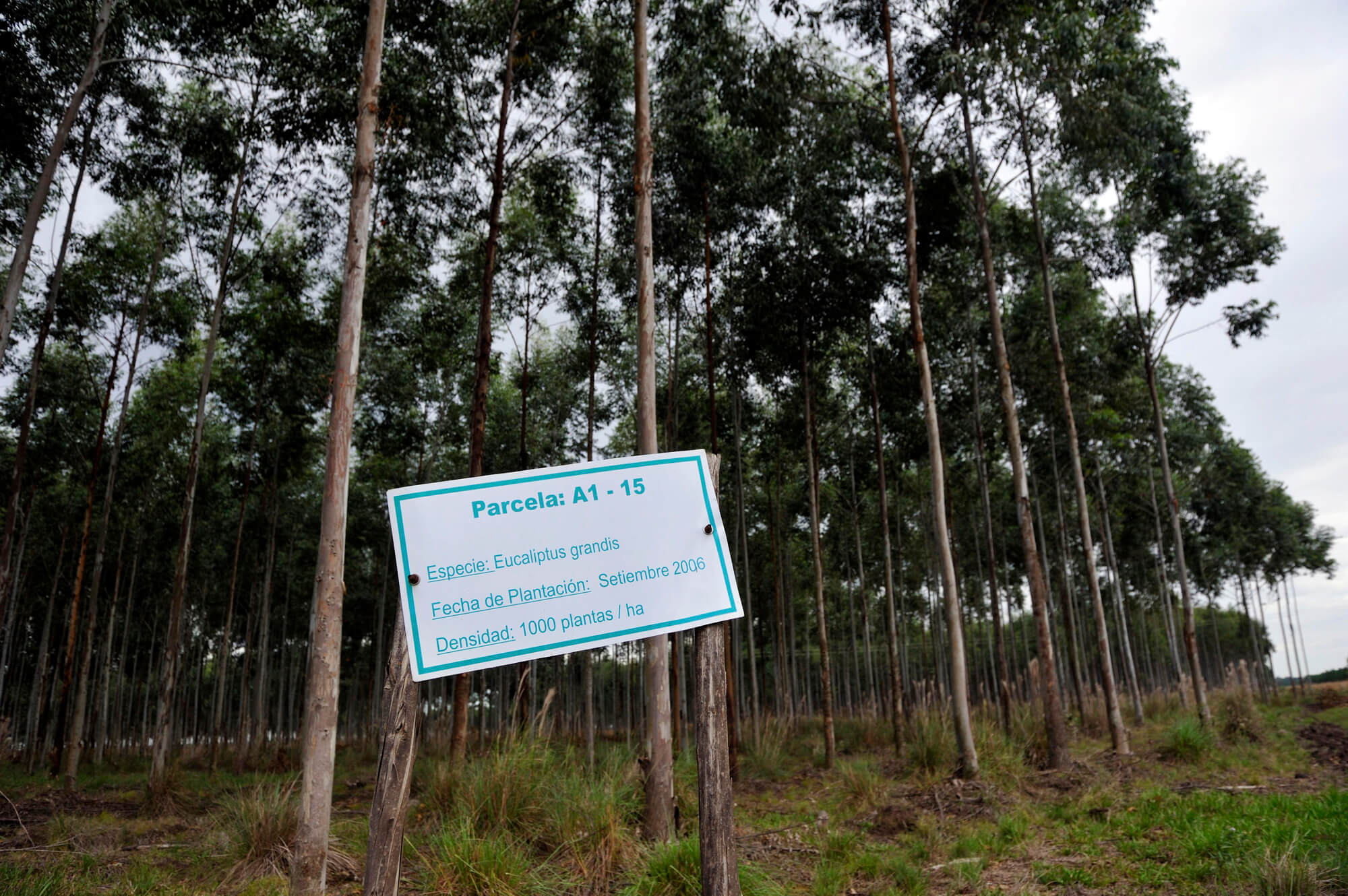
The emission permits offered by the Arbaro Fund through an international trader have also been criticised by scientists. Reimund Schwarze, Professor of Environmental Economics at the Helmholtz Centre for Environmental Research in Leipzig, considers the voluntary standards of Arbaro’s CO2 certificates insufficient.
Global emissions trading allows companies that harm the climate to minimise their CO2 emissions on paper by giving money to climate protection programs for saved emissions. Permit givers decide on the number of emissions permits a particular project can be allocated. Arbaro’s emissions permits are traded on the voluntary carbon offsets market by a company that has recently been criticised for overestimating the CO2 emissions of individual projects. According to Schwarze, this alone „should be a reason for the DEG as a potential investor to exclude them“.
With regards to the the criticism of the emissions permits standards, Arbaro stated that the calculation of how many tonnes of CO2 they save follows the „general guidelines of the Intergovernmental Panel on Climate Change (IPCC) and the project-specific recommendations and methodologies of the Verified Carbon Standard (VCS)“.
DEG finances ‘green deserts’ in Paraguay
Two reports by the Forest Stewardship Council (FSC), an NGO whose purpose is to ensure the sustainable management of the world’s forests, have concluded that the Arbaro plantations are having a disastrous impact on the local environment. Toxic pesticides, in particular the controversial weedkiller glyphosate, mean fewer and fewer animals and plants can survive in the fields. Former employees at Arbaro describe the monoculture eucalyptus plantations in Paraguay as a „green desert“. El Surtidor has already reported on the effects of pesticides such as glyphosate on the human population around the Arbaro’s plantations via other international media outlets.
Arbaro claims that the development in the project areas is being closely monitored in this regard, stating that their „initial monitoring results show that biodiversity in the project areas is richer“ than when the land was used for livestock or soy production.
Whose responsibility is it?
A freedom of information lawsuit is currently pending at the Cologne Administrative Court against the state development bank KfW, of which the DEG is a subsidiary. The human rights organisation FIAN and the European Center for Constitutional and Human Rights (ECCHR) are demanding that PAYCO, the agricultural giant, hand over its environmental and social action plans.
Although the court has already ruled in favour of the human rights organisations, the KfW has appealed against the decision, despite the court’s ruling that the KfW is legally obliged to provide information under the Freedom of Information Act (FoIA) – and thus so is the DEG.
CORRECTIV requested to see the DEG’s social and environmental action plans, referring to the Freedom of Information Act. The DEG refused to provide any information, stating that the DEG, as an „institution operating under private law, was not subject to the Freedom of Information Act (FoIA)“.
This reveals that the DEG incorrectly sees itself as a private bank, says Roman Herre of FIAN Germany, „and not as an actor mandated by the state, acting in the public interest and accountable to them“.
The DEG’s lack of transparency and questionable business practices are a recurring topic in the Bundestag (German parliament). The Left Party (Die Linke), for example, has been calling on the German government for years to ensure greater transparency in the DEG’s business dealings and has demanded „stronger political regulation“.
Peter Wolff, an expert in development finance, is also critical of the DEG’s business practices: „The bank operates under the shadow of the KfW. No one knows exactly what it actually does.“ Wolff also criticised the DEG’s involvement in questionable projects such as PAYCO and speaks of subsidisation.
But the German government does not want to hear the accusation that a development policy failed. In communications with CORRECTIV and El Surtidor, the BMZ maintained that by promoting the private sector, the DEG provides an „important, complementary contribution to development cooperation“, and with regards to the climate that „without funds from the private sector, neither the sustainable development goals nor the climate goals of the Paris Agreement will be achievable“.
Translation: Ella Norman

